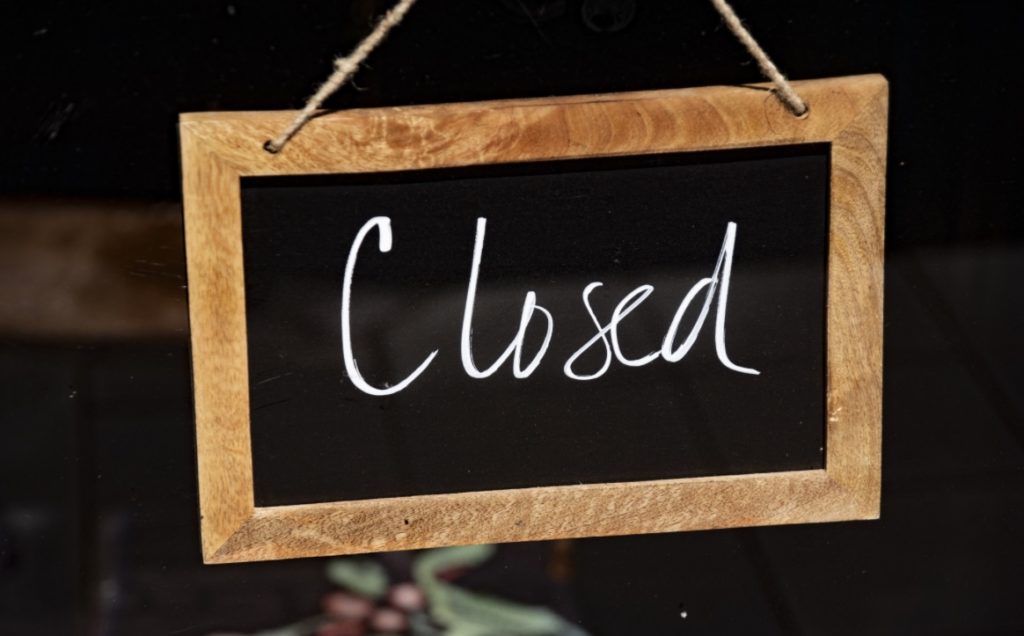
ECONOMY IN FREE FALL: With 14,784 total unemployment claims filed last week, staff at the Vermont Department of Labor are struggling to keep up with the flood of applications.
The official unemployment numbers the Vermont Department of Labor reported this week did not include 11,000 unprocessed claims due to the record volume of layoffs.
Officially the department reported 3,784 claims Thursday morning, posting a record high spike in jobless claims. However, these were claims processed through the department in time to appear on the weekly report.
On Thursday, Department of Labor commissioner Michael Harrington said the state received another 11,000 claims that had yet to be processed, and therefore didn’t make it into the total number.
This means the total number of Vermonters who lost their jobs in a single week following Gov. Phil Scott’s economic shutdown reached 14,784 — a 2,143% increase over the prior week’s 659 jobless claims.
On Wednesday, Kyle Thweatt, a spokesperson for the Office of the Commissioner for the Department of Labor, told True North that even with a tripling of the department’s internal answering capabilities, callers can expect delays.
“There is a potential for folks to get a busy signal on that line,” he said.
The full tally of jobless claims is more in line with national reports about job losses due to government responses to the coronavirus. The U.S. Department of Labor reported that a record 3.28 million Americans filed for unemployment benefits. That’s up from 282,000 the week before.
Last week Scott said Vermonters will endure economic hardships as long as it takes to curb the spread of the coronavirus. “We’ll sustain it for as long as feasibly possible,” he said. On another day, Scott said “this is going to take longer than Easter to overcome.”
Scott’s Easter comment was a reference to President Trump’s stated goal of letting businesses reopen by Easter. The president, who has made clear he’s weighing both the dangers of the virus and the dangers of an economic collapse, sent out this tweet on Tuesday.
Our people want to return to work. They will practice Social Distancing and all else, and Seniors will be watched over protectively & lovingly. We can do two things together. THE CURE CANNOT BE WORSE (by far) THAN THE PROBLEM! Congress MUST ACT NOW. We will come back strong!
— Donald J. Trump (@realDonaldTrump) March 24, 2020
As of Friday afternoon, Vermont is reporting 10 deaths from COVID-19, commonly known as coronavirus. About 184 people in the state have tested positive for the disease, with 2,261 tests conducted.
Nationwide, 1,246 individuals in the United States have died from COVID-19. Cases of coronavirus illness have risen to 85,356, according to the Centers for Disease Control and Prevention.
By comparison, 24 Vermonters have died from pneumonia, and three by the flu, over the three-week period ending March 7. About 8,335 Americans died of pneumonia and 1,289 from the flu in the same period. The weekly statistics are tracked by the National Center for Health Statistics Mortality Surveillance System.
Since the beginning of flu season — Oct. 1, 2019 — between 24,000 and 62,000 Americans have died of the flu, according to the CDC. Total flu cases for the period range between 38 million and 54 million.
The president’s overall approval rating is at record highs according to polls, including one from Gallup that states 60 percent of Americans approve of his handling of the virus.
Local reaction to Scott’s handling of the virus
Vermonters have strong feelings about the Scott administration’s decision to restrict the economy for as long as it takes to stop the virus.
Asked if the state economy can handle months of economic shutdown, Paul Miller, a resident of Montpelier, said, “No, probably not.”
Tom Plougher, also of Montpelier, said the root of economic activity requires staying productive.
“I’m of the opinion that there’s not a block of money somewhere, money is what people do. When activity stops, the exchanging of goods and services, then you have no money,” he said.
Plougher sees value in getting state and federal financial assistance distributed to help compensate for lost revenue.
“The idea of putting money in people’s hands and keeping people on unemployment insurance, that keeps the money flowing,” he said.
Bob Lewis of Northfield said he’s uncertain about where the economy is headed.
“It’s really, really hard to say,” he said. “The economy has been kind of odd anyways with the huge tax giveaways and so on. I don’t know where we’re heading economically anyways.”
He said it’s difficult to predict when will be the right time to let people return to work.
“That’s a tough question,” he said. “I’m glad I’m not the one that has to make such decisions. I say let the people with the most knowledge and experience, not the ones with the strongest opinions, [make the decision].”
Stanlee Lindahl, a temporary transplant from Minnesota while his wife works at the hospital in Berlin, said he thinks the economy can endure a longer shutdown.
“I guess people are still spending money; everyone has to eat you know,” he said. “Pretty soon the checks will be here, so they’ll have money to spend, and I think it will be OK. We’ll weather the storm.”
Kenneth Blondin was living out of his car in the Berlin area before the virus and economic woes began. He doesn’t see the economy lasting too long if it is shut down.
“I think it’s gonna be a big toll on the whole country,” he said.
About the spread of the virus, Blondin said it is “hard to know who has and who doesn’t have it — that’s the scary part.”
Michael Bielawski is a reporter for True North. Send him news tips at bielawski82@yahoo.com and follow him on Twitter @TrueNorthMikeB.


